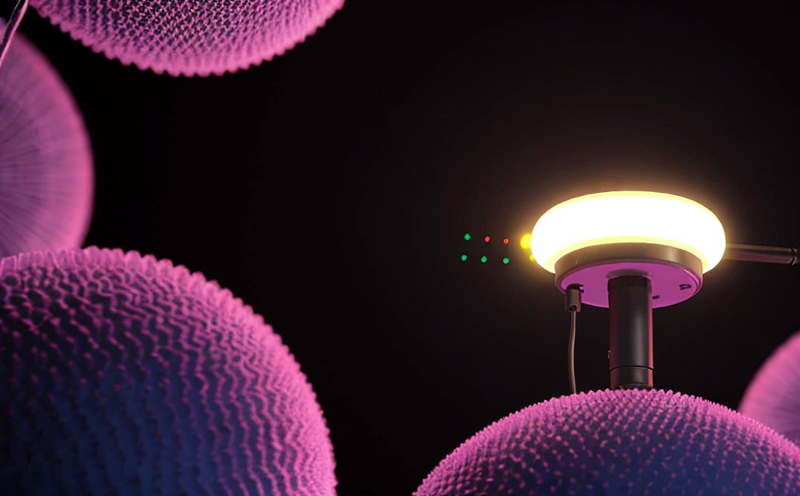Testing for Cross-Reactivity Between Nitric Oxide and Ozone Sensors
Unlock Accurate Air Quality Monitoring The Importance of Testing for Cross-Reactivity Between Nitric Oxide and Ozone Sensors
In todays increasingly stringent air quality regulations, businesses are under pressure to ensure their monitoring systems provide accurate readings. One critical aspect often overlooked is cross-reactivity between nitric oxide (NO) and ozone (O3) sensors. This phenomenon can lead to incorrect measurements, compromising the integrity of your data and potentially resulting in costly penalties or reputational damage.
At Eurolab, we specialize in providing laboratory services that help businesses like yours overcome these challenges. Our Testing for Cross-Reactivity Between Nitric Oxide and Ozone Sensors is a specialized service designed to ensure the accuracy of your air quality monitoring systems. By identifying potential cross-reactivity issues, you can maintain compliance with regulations, protect your brand reputation, and make informed decisions about air quality management.
What is Testing for Cross-Reactivity Between Nitric Oxide and Ozone Sensors?
Cross-reactivity occurs when a sensor intended to measure one pollutant (e.g., ozone) also reacts to another substance (e.g., nitric oxide). This can lead to inaccurate readings, making it challenging to assess air quality effectively. Our testing service utilizes advanced laboratory equipment to simulate real-world conditions and evaluate the performance of your NO and O3 sensors in a controlled environment.
Benefits of Testing for Cross-Reactivity Between Nitric Oxide and Ozone Sensors
Our Testing for Cross-Reactivity Between Nitric Oxide and Ozone Sensors offers numerous advantages that can benefit your business
Accurate Data By identifying potential cross-reactivity issues, you can trust the accuracy of your air quality data, making informed decisions about monitoring strategies and compliance with regulations.
Regulatory Compliance Comply with increasingly stringent air quality standards by ensuring your monitoring systems provide accurate readings. Non-compliance can result in penalties, fines, or reputational damage.
Cost Savings Minimize costs associated with incorrect measurements, such as unnecessary repairs, replacements, or upgrades to your monitoring equipment.
Reputation Protection Maintain a strong reputation by demonstrating commitment to air quality management and adherence to regulations.
Improved Decision-Making Make informed decisions about air quality management strategies, personnel safety, and resource allocation based on accurate data.
Competitive Advantage Distinguish yourself from competitors by investing in the most accurate air quality monitoring systems available.
How Does Testing for Cross-Reactivity Between Nitric Oxide and Ozone Sensors Work?
Our testing service involves a comprehensive evaluation of your NO and O3 sensors in a controlled laboratory environment. Our expert technicians will
Receive and inspect your monitoring equipment.
Conduct a thorough analysis of sensor performance under simulated real-world conditions.
Evaluate the potential for cross-reactivity between NO and O3 sensors.
Provide detailed reports on findings, including recommendations for improvement.
Key Benefits at a Glance
Customized testing solutions tailored to your specific monitoring equipment and needs.
Expert analysis performed by experienced technicians using advanced laboratory equipment.
Comprehensive reporting providing clear insights into sensor performance and potential cross-reactivity issues.
Improved data accuracy ensuring informed decision-making about air quality management.
Frequently Asked Questions
Q Why is Testing for Cross-Reactivity Between Nitric Oxide and Ozone Sensors essential?
A Accurate air quality monitoring requires understanding the behavior of your NO and O3 sensors in a real-world environment. Cross-reactivity can lead to incorrect measurements, compromising compliance with regulations and data accuracy.
Q What happens during the testing process?
A Our expert technicians will inspect your equipment, conduct analysis under simulated conditions, evaluate potential cross-reactivity issues, and provide detailed reports on findings.
Q Will I receive recommendations for improving my monitoring system?
A Yes! Our comprehensive reporting will include tailored suggestions for optimizing sensor performance and minimizing potential cross-reactivity issues.
Invest in Accurate Air Quality Monitoring with Eurolab
Dont risk inaccurate data or reputational damage. Choose Eurolab for expert testing services that ensure the accuracy of your air quality monitoring systems. By identifying potential cross-reactivity issues, you can maintain compliance with regulations, protect your brand reputation, and make informed decisions about air quality management.
Contact us today to discuss your specific needs and schedule a test for Testing for Cross-Reactivity Between Nitric Oxide and Ozone Sensors. Trust Eurolab to provide the highest level of expertise and service in laboratory testing solutions.




